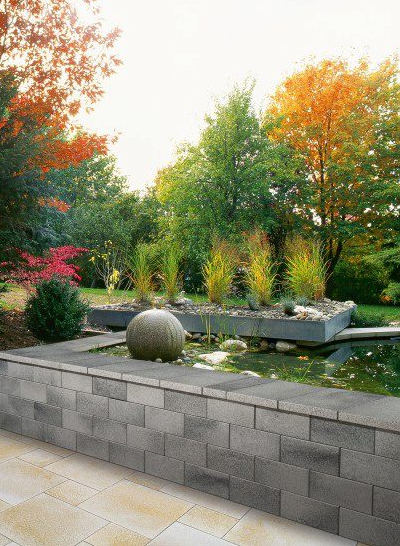How a Landscaper Can Help Reduce Water Bills for Your Commercial Property in Amherst, NH
A hefty water bill is the last thing a business wants to deal with, especially if much of that water is going toward landscaping. However, there are solutions for keeping a commercial property looking beautiful while also minimizing its water use. Here is how a landscaper can help reduce water bills for your commercial property in Amherst, NH.
Strategically Planted Trees
Trees, when planted strategically, achieve several important objectives in a commercial landscape. Trees provide much welcome shade on hot summer days. This helps lower water bills because they shade grass or ornamental plantings, reducing water evaporation.
Trees also help reduce the “heat island effect” that makes some environments so much hotter than the surrounding areas. Even in a small town, pavements soak up heat that can adversely affect the health of a business’s landscaping. Simply planting more deciduous (leafy) trees could help reduce the perceived ambient temperature, and reduce the landscape’s need for water.
Image Source - Unilock
Opt for Xeriscaping
Wherever possible, choose xeriscaping to create a drought-tolerant landscape. Many people mistake xeriscaping for the look of a desert—such as lots of spiky plants set in gravel. This is one approach, but it’s not the only one—and certainly not one that is suited to the New Hampshire climate. There are many plants native to New Hampshire that are drought-tolerant, including beautiful and lush trees, shrubs, and perennials. For the best results, work with a landscape designer who will assess the unique conditions at your commercial site, including soil conditions and sloping, to recommend the best plants for a water-wise landscape.
Related: 6 Reasons for Tree Stump Removal in Milford, NH
Look into Permeable Pavers
New paver patios and walkways may lessen the amount of vegetation that needs to be watered, but more importantly, the right pavers actually allow rainwater and snowmelt to seep back into the ground, rather than running off into the municipal sewer system. Normally, rainwater accumulates on top of non-permeable surfaces or runs off. This can cause puddles to form (puddles can pose safety hazards as well as create stains on some surfaces), and runoff can overwhelm the wastewater system, or even cause flooding.
Permeable pavers could be the answer. Permeable pavers look just like ordinary pavers, but they have a much smaller impact on the environment. The pavers themselves are not permeable (this would cause damage from the freeze-thaw cycle)—what’s different is the extra space between each permeable paver, special joint compounds, and a specific underlayment beneath the paver surface, that allows rainwater and snowmelt to seep through to the ground.
How do permeable pavers save on your water bill? Nearby plants with deep roots—such as trees and large shrubs—will benefit from the water that seeps into the ground.
Consider a Drip Irrigation System
Drip irrigation is much more effective than spray irrigation (sprinklers) in ensuring plants have adequate water. Sprinklers tend to waste a lot of water either by spraying things that don’t need watering, like sidewalks and buildings, or through evaporation as water sits on top of leaves or blades of grass. Drip irrigation puts water right where it’s needed—the roots. This allows for less watering, and significantly less waste. A good drip irrigation system also allows for modulating the amount of water directed at specific plants; and can be automated so that it delivers water at the optimal time of day (early morning—before business hours).
Related: The Four-Stage Process for Your Westford, MA, Landscape Design Project
Bring in Mulch
A thick layer of quality mulch in planting beds and around trees helps to retain moisture and prevent excessive watering. Mulch does dry out over time and needs to be replaced annually.

